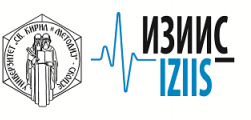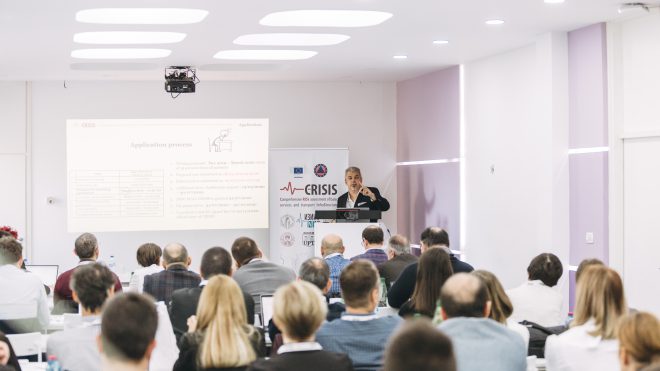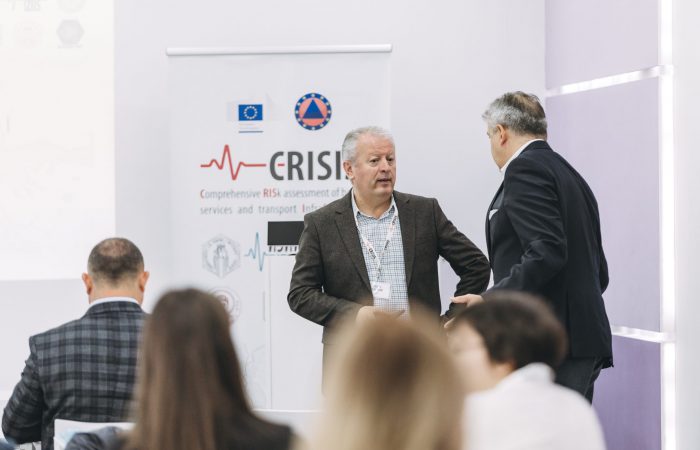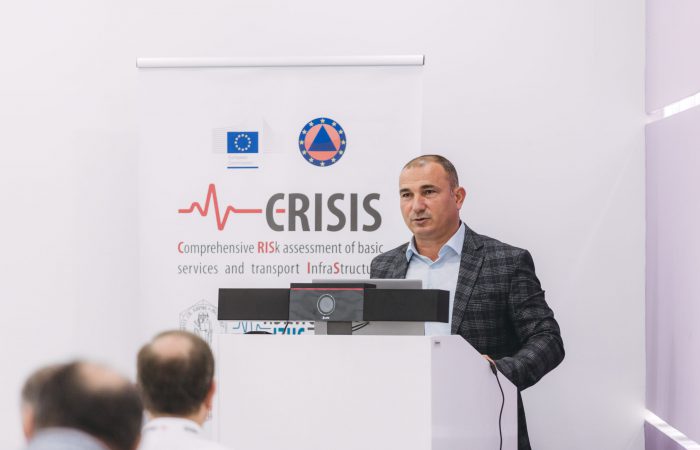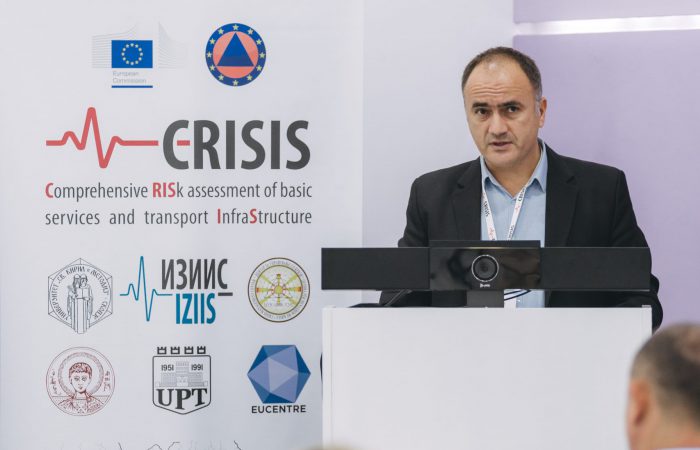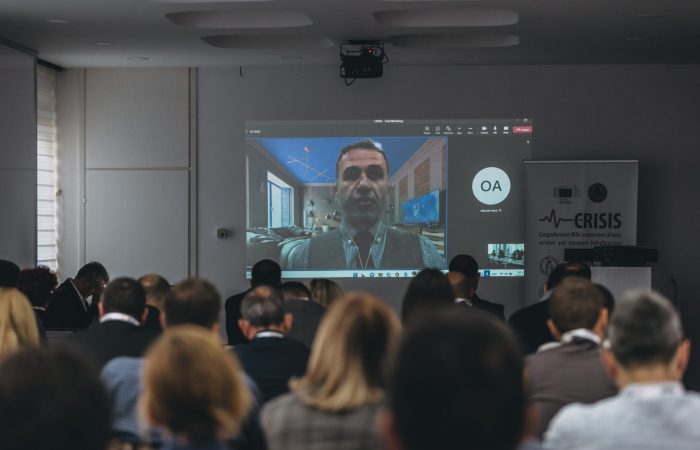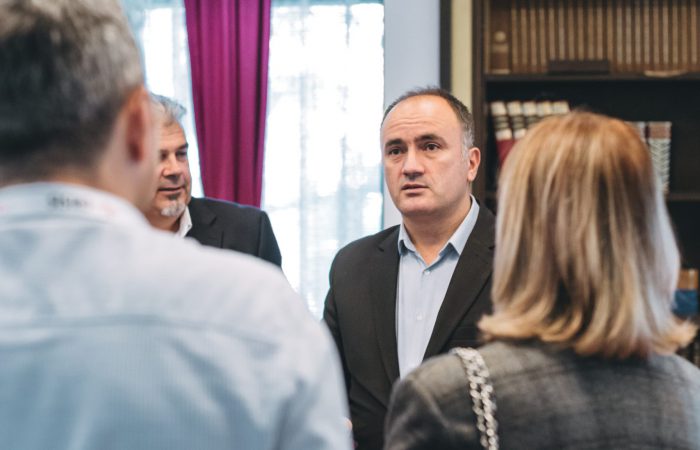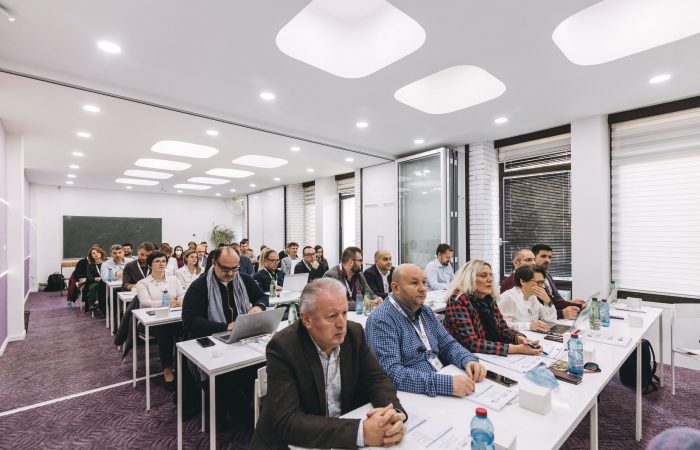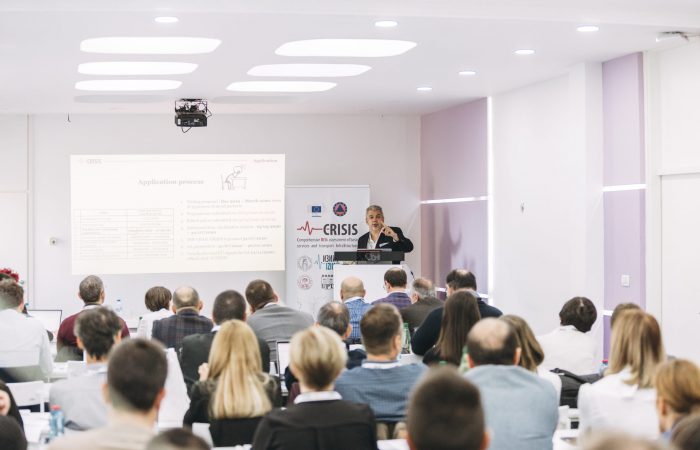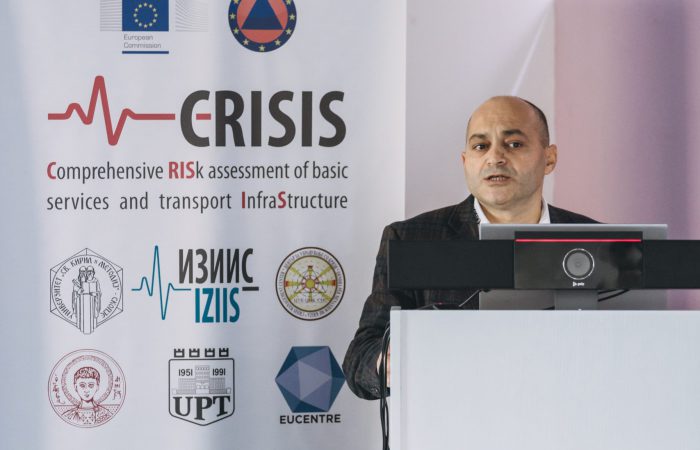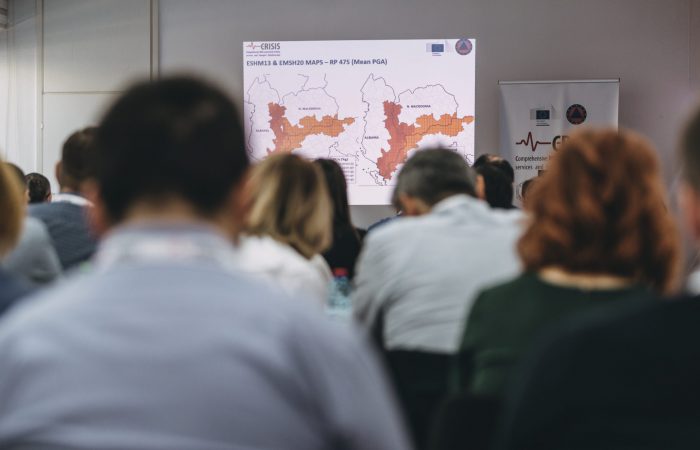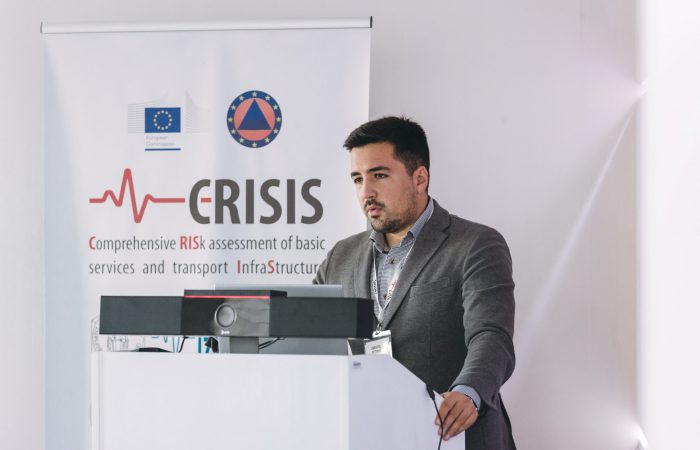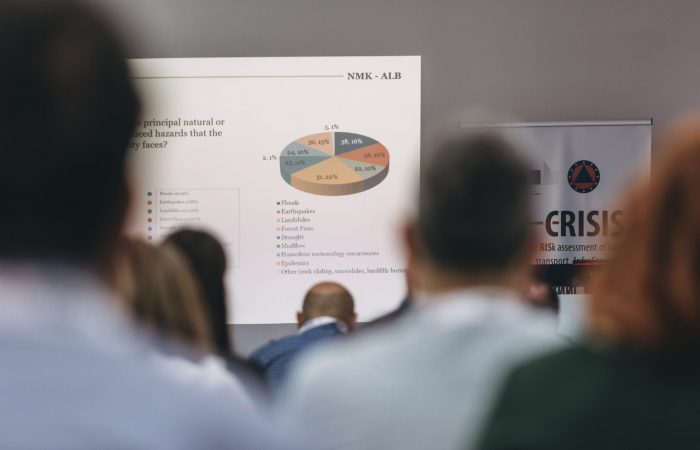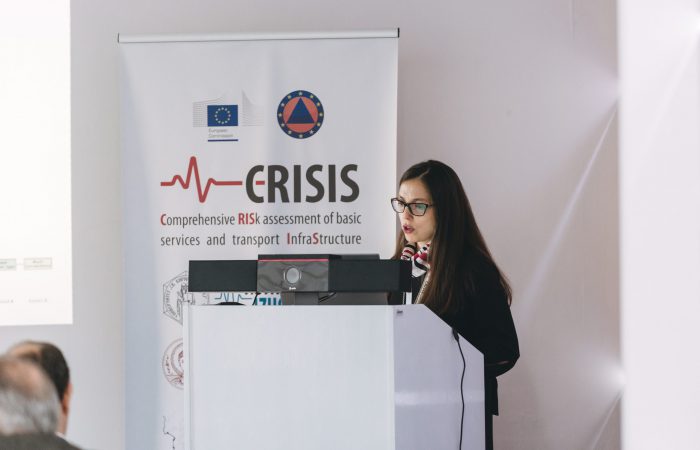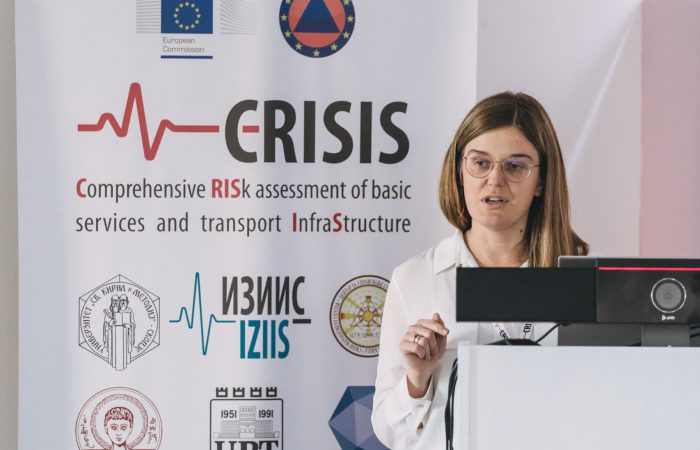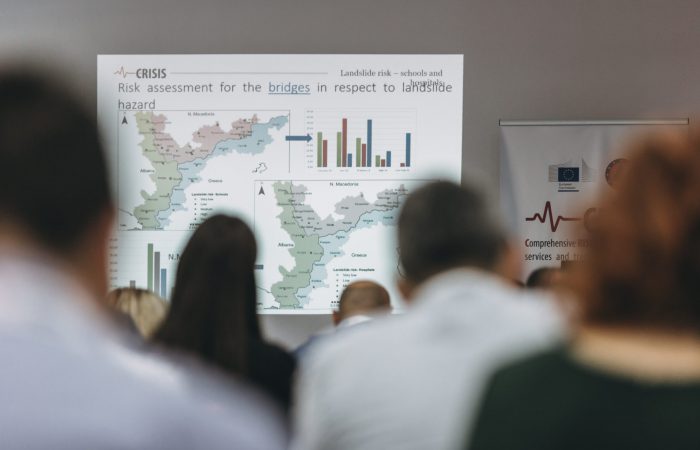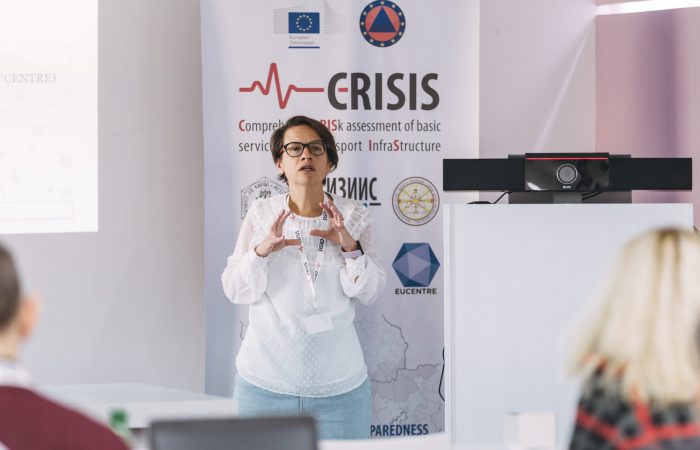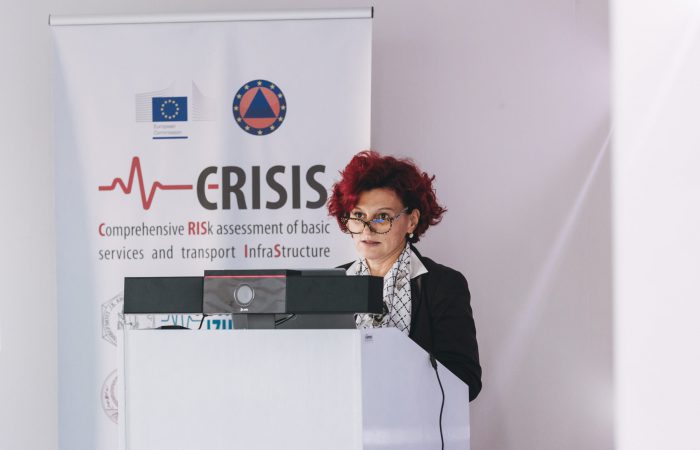Along with its partners, IZIIS has finally brought the European Project “Comprehensive RISk assessment of basic services and transport InfraStructure” CRISIS to its end.
The big final conference organized by the Institute of Earthquake Engineering and Engineering Seismology, (IZIIS), Ss. Cyril and Methodius University in Skopje, as a meeting place for the best experts in the field marked the end and rounded off the two-year project that internationally positioned the institute as a renowned institution in this field.
The project started in 2020 and was supported by the program of the Directorate General of the European Civil Protection and Humanitarian Aid Operations DG- ECHO at the European Commission. In addition to IZIIS, other participants in the project included: the Crisis Management Center in Skopje, the EUCENTRE from Pavia, Italy, the Aristotle University of Thessaloniki and the Polytechnical University in Tirana.
“IZIIS was coordinator of this international project – a privilege that is rarely given to Macedonian institutions in international projects financed by the European Union. This certainly brings a great responsibility in the entire process: from the preparation of the project proposal, application, negotiation, managing and timely realization of all planned activities. The project was realized in the period 2020 – 2022. In the course of two years, renowned domestic and foreign experts in the field were engaged in investigations, whose results will be put into practice through the crises management centers. This will only show that scientific achievements should and must be applied in development of a disaster resilient society. The high international reputation and social accountability of IZIIS have been confirmed in practice once again with this project for which we are particularly proud” stated Prof. Dr. Vlatko Sheshov, Director of IZIIS.
During the first day of the two-day agenda of the Conference, in the IZIIS premises, renowned European experts talked about their own experience and also about how to achieve a good coordinated regional and international cooperation that will include recent scientific knowledge in the field of management of risks pertaining to natural disasters.
The European continent has its own history of natural disasters: earthquakes, floods, landslides, draughts, extreme temperatures, forest fires and storms that have caused extensive economic, social and ecological consequences and have affected the well being of the people and the society for a longer time period. These natural disasters have frequently exceeded the capacity of states to manage the emergency situation in the aftermath of a natural disaster and have pointed out the need for interstate and regional cooperation.
The CRISIS project is aimed at improvement of management of natural disaster consequences through establishment of a harmonized and efficient system for assessment of the risk related to vital structures and the transportation infrastructure in the cross-border region of Macedonia, Greece and Albania.
“The region proposed for cross-border cooperation represents, in fact, the central part of the Balkan Peninsula that is unfortunately characterized by an “extensive” history of seismic events and occurrences of geotechnical instabilities, or more precisely, landslides. The evidence of the intensive seismic activity of this region are the earthquakes with a magnitude greater than six (M > 6). Land sliding in the region is also a hazard with a well-known history whose occurrence causes extensive damage to the infrastructure. The abrupt melting of the snow covers, the heavy and long showers, the uncontrolled wood cutting, the earthquakes, contribute to the increase of the potential occurrence of instabilities of natural slopes as well as “artificial”, unprotected slopes. It is only for the last several years that we have been witnessing a complete or partial disruption of traffic along a number of roads in this region due to occurrence of slope instabilities (landslides, rockfalls and alike). The seismic and geotechnical hazard within the project have been identified as one of the key natural hazards that have the potential to cause considerable problems and damages in these cross-border regions wherefore a need arises for organization of the systems in a way that will enable efficient and timely management of risks pertaining to structures housing vital services (hospitals, schools) and transportation infrastructure (bridges)” – were some of the conclusions from the conference.
During the second day of the conference, the participants visited Bitola and had meetings with local partners where they presented how the CRISIS project provided a sound basis for development of a cooperative approach toward prevention and preparedness for management of disasters in the cross-border regions of neighboring countries located in the region of the Western Balkan. Within the frames of the project, a comprehensive exposure model has been defined based on the identified relevant goods related to the vital structures and the transportation infrastructure exposed to natural hazards relevant for the region of interest. To effectively manage emergency situations, a web platform has been established integrating the natural hazards, the exposure model and the analysis of different risk scenarios. The developed methodology and web platform represent a sound basis for achievement of sustainability in respect to creation of a network of competent bodies and development of plans for risk management in cross-border regions.
The achievement of the above results will change and improve the conditions under which decisions are presently made by the state authorities, like for example, ministries, crises management institutions, health authorities and agencies in charge of security of transportation systems. In the decision-making process, these institutions will obtain relevant information about the risk pertaining to a particular natural hazard and will predict possible losses in order to optimize resources and define priority actions. CRISIS will provide the necessary tools for the local and regional bodies for assessment of the risk related to vital services and the critical infrastructure.
